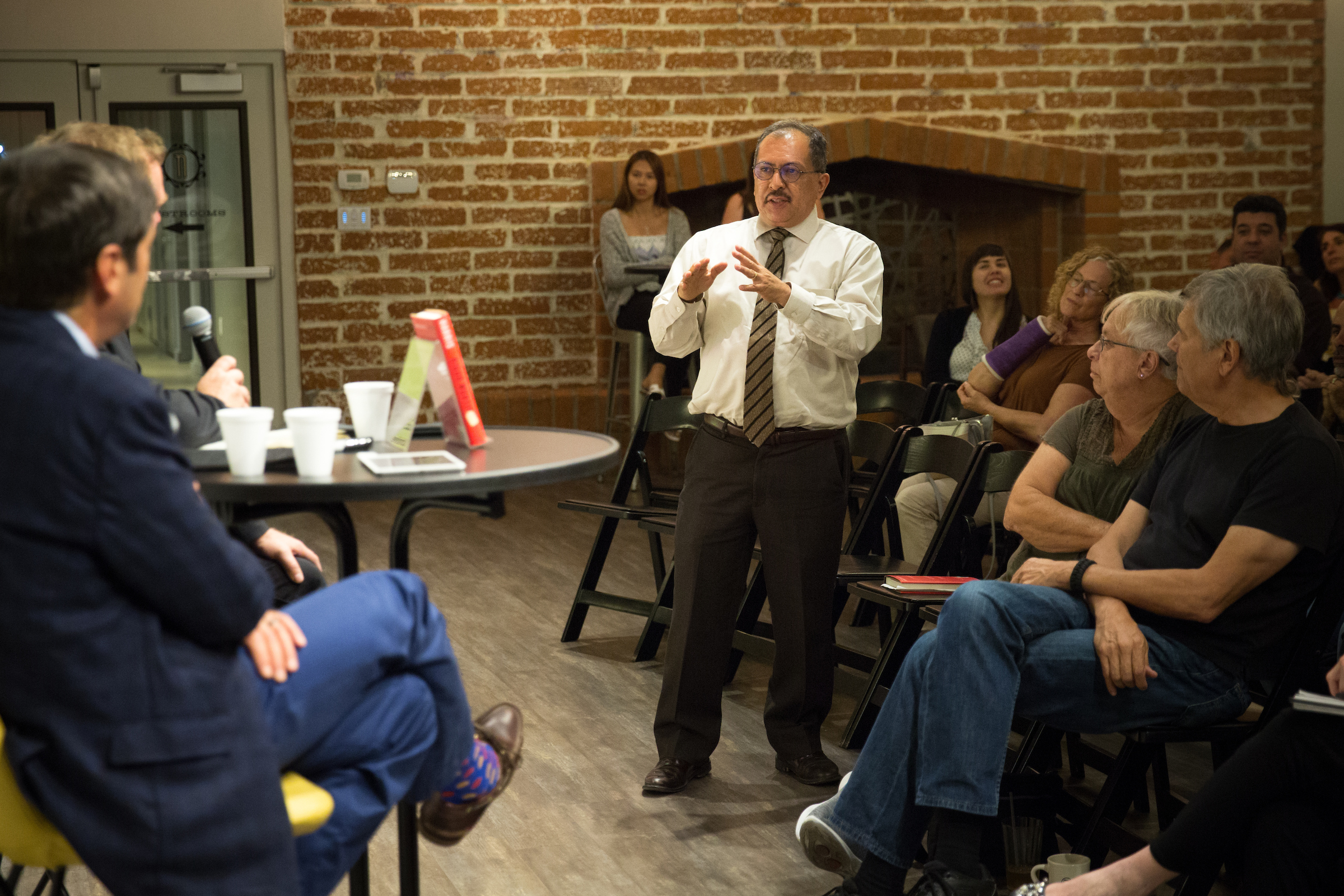NPR correspondent on the dangers of sloppy science
Richard Harris and ASU Professor Andrew Maynard talk about how iffy research can grab headlines but dash public's hopes
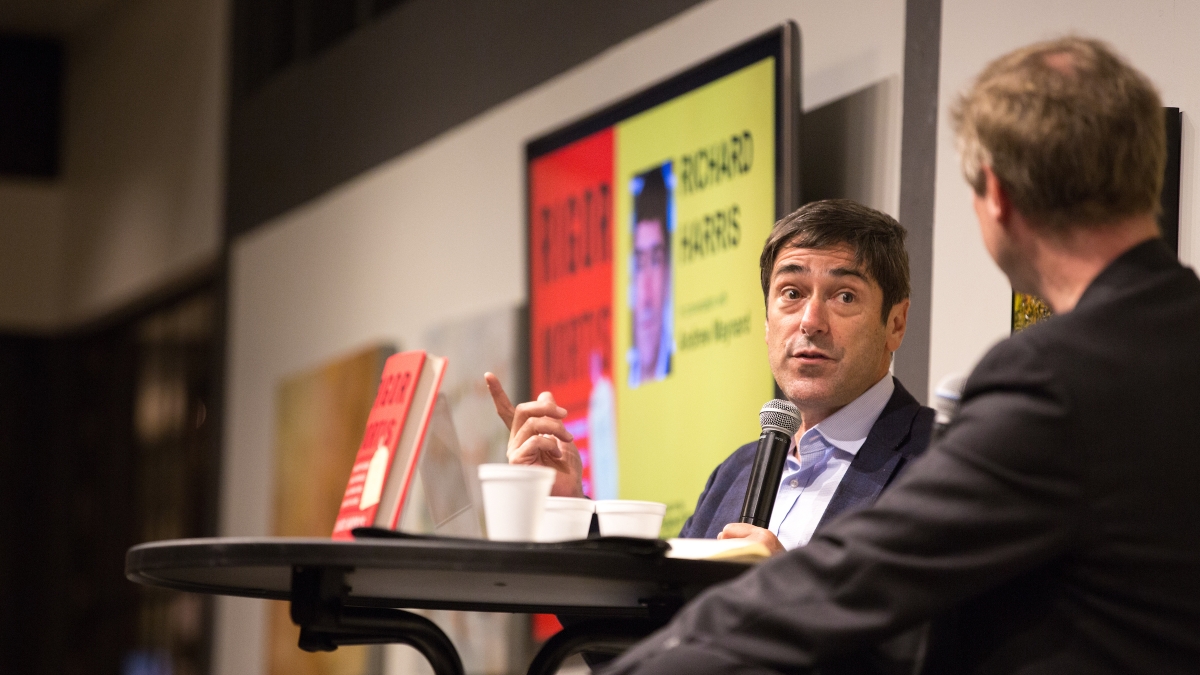
In 2000, it was discovered that a breast-cancer cell line used in thousands of studies was actually a melanoma cell.
After the discovery, approximately 900 more studies were conducted — using the same cell line. The National Institutes of Health now requires all studies it funds to validate their cell lines.
National Public Radio science correspondent and author Richard Harris discussed this and other scientific debacles with Arizona State University’s Andrew Maynard in a conversation Tuesday night about Harris’ latest book, “Rigor Mortis: How Sloppy Science Creates Worthless Cures, Crushes Hope, and Wastes Billions.”
“They still get the papers out and still get tenure,” said Maynard, a professor in the School for the Future of Innovation in Society and director of the ASU Risk Innovation Lab.
“It doesn’t matter if the paper is right or wrong,” Harris said to the crowd gathered at the Changing Hands Bookstore in Phoenix. “It matters if it gets attention.”
“There’s huge pressure to get those grants,” Maynard said.
The problem lies mainly in biomedical science, and that’s usually where these kinds of errors are made — in research that affects human health, Harris pointed out.
“If you’re an astronomer and you say you’ve found an 11th planet and it turns out not to be true, it doesn’t really matter,” he said. (“I know some astronomers who would disagree with that,” Maynard interjected.)
At Changing Hands Bookstore on Tuesday evening, Tempe attorney Esteban Escobedo asks NPR correspondent Richard Harris about how the issues discussed in Harris’ new book apply to the field of space science. Photo by Anya Magnuson/ASU Now
They brought up the type of headlines that dot the news every day: “New link between pesticides and Alzheimer’s” or “Eggs are bad for you.”
Two French scientists examined 180 news stories like those and followed up on the studies. More than half of them were wrong.
“People are concerned about this,” Harris said.
Science is hard, Harris said. “They’re stepping off into the unknown,” he said. “Of course there are going to be missteps.”
However, he also pointed out that $300 million has been spent on brain-cancer research, “and we’re no closer than we were 20 or 30 years ago.”
It’s mainly a case of sloppy work or inattention to detail, he said, such as being sloppy about the choice of mice to use in a study. No one would do a study on 10 human siblings and say it applies universally, Harris said.
“As far as anyone can tell, there’s very little outright fraud,” Harris said. Scientific misconduct is “a fraction of a percent of the problem.”
How to begin fixing this? “It needs to be a society-wide conversation,” Harris concluded.
Top photo: NPR correspondent Richard Harris (left) discusses his new book with ASU Professor Andrew Maynard at Changing Hands Bookstore at an event hosted by the ASU School for the Future of Innovation in Society on Tuesday evening. Photo by Anya Magnuson/ASU Now
More Science and technology
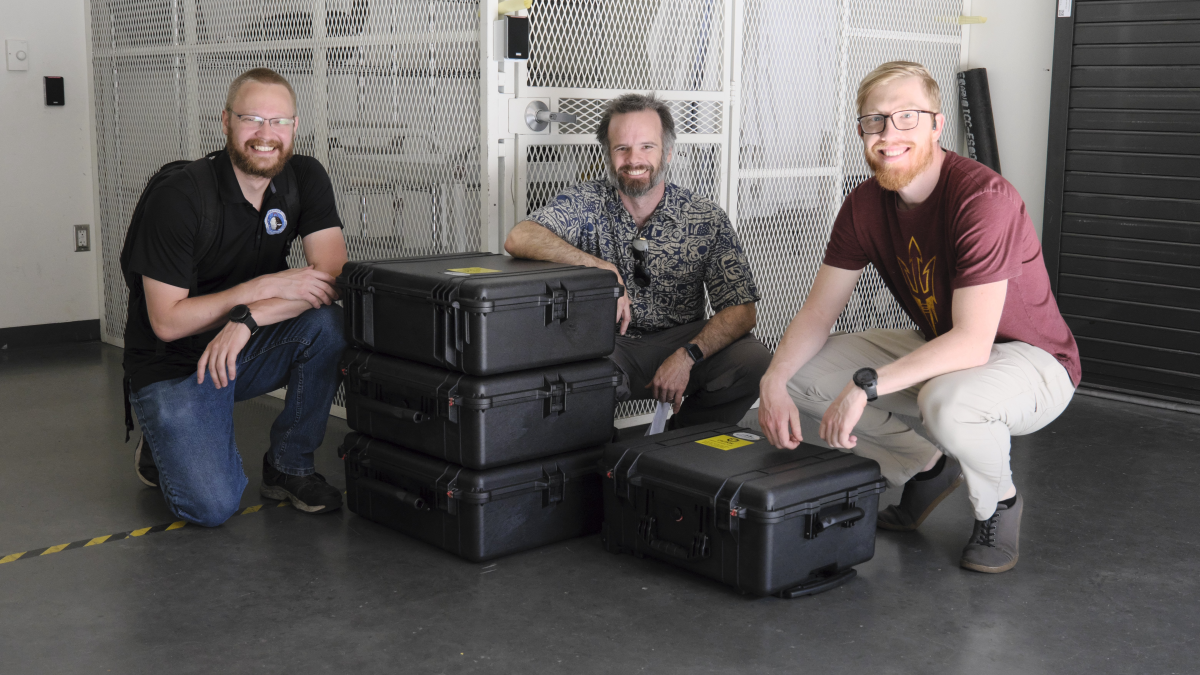
SPARCS mission spacecraft bus delivered to ASU for final assembly
The Arizona State University team that is building the NASA-funded Star-Planet Activity Research CubeSat, or SPARCS, cleared a major milestone this week — receiving its spacecraft bus at the School…
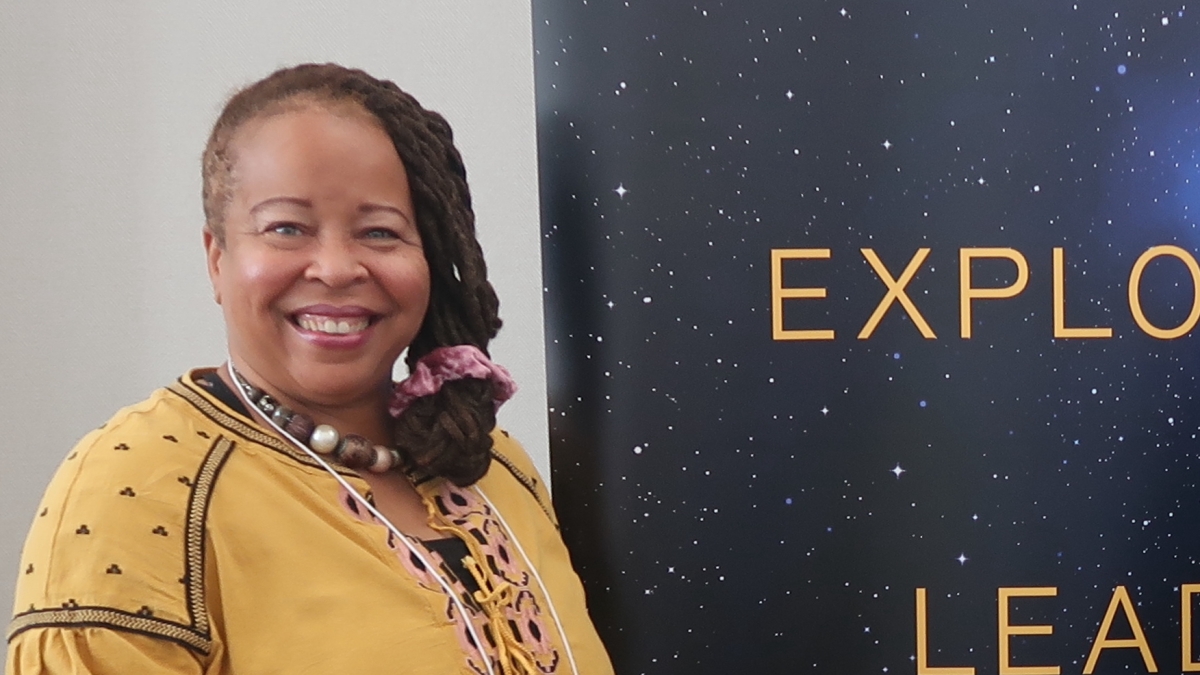
Associate professor shares her journey from NASA to ASU
From leading space missions to designing and building spaceflight hardware and training students in space science and engineering, Arizona State University is proving that space is more than a…
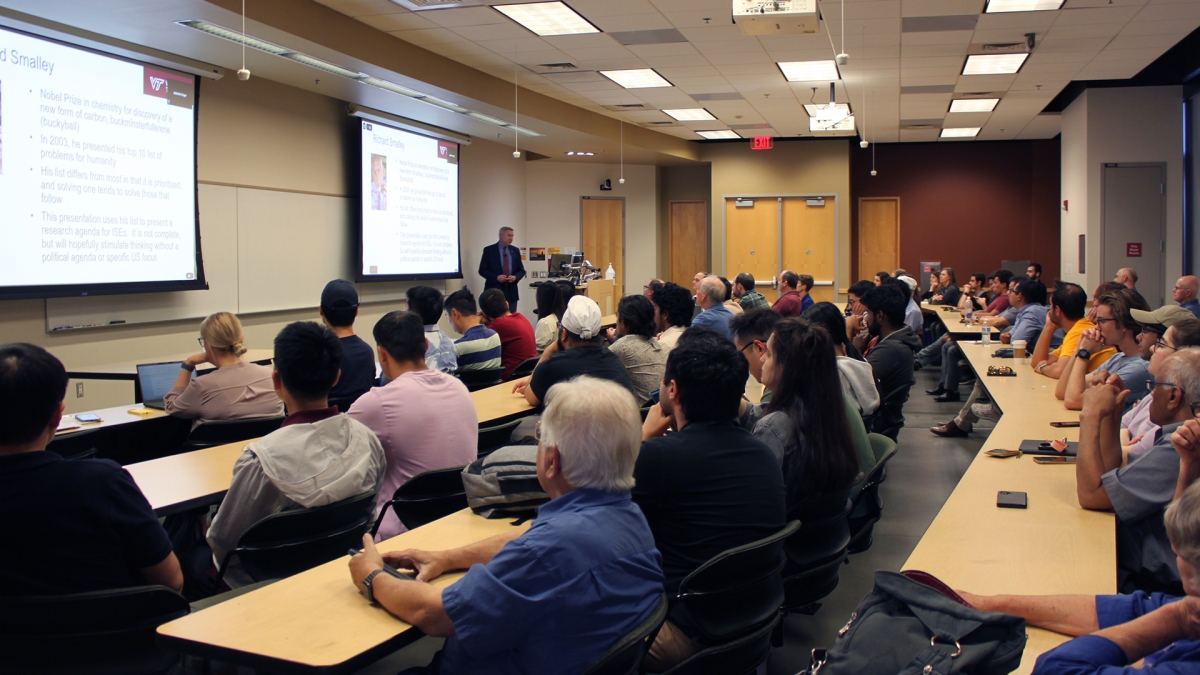
Famed systems engineer inspires ASU to tackle global problems
“Providing great talent with great opportunity can make a great difference.” Such was a key part of the message delivered by G. Don Taylor, executive vice provost and the Charles O. Gordon Professor…
